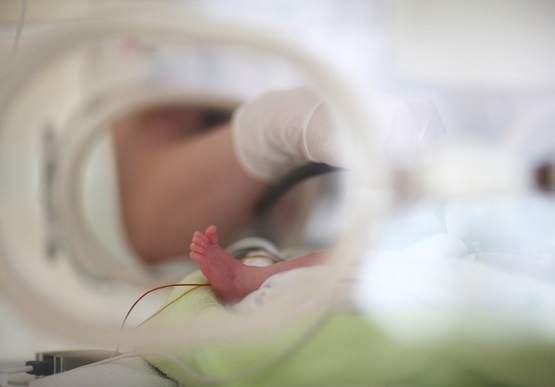
There are some pregnancies that do not go as planned. Some babies are born too early which is a worry every parent faces. Dr Chen Lin Han, a Consultant Obsterician and Gynaecologist at Mount Alvernia Hospital gives advice on how to decrease the chances of preterm labour.
Normal pregnancies last for 40 weeks. If labour starts at 37 weeks or earlier, it is considered premature of preterm labour. Babies born prematurely have a greater chance of several health complications. And the risk increases the earlier the baby is born.
“There are three keys to reducing the chances of having a premature baby. First, consult a doctor prior to planned conception, second, antenatal follow up and third, recognise signs of preterm labour,” said Dr Chen.
Beating the odds
“Consulting a doctor prior to planned conception enables the doctor and patient to pick up and treat any pre-existing medical conditions like thyroid disease, diabetes mellitus and renal disease.”
It also helps identify hereditary disease, such as thalassemia and ensuring adequate protection against infection like rubella through vaccination, he added. “During antenatal visits, the doctor will assist the patient to identify obstetric and gynaecologic risk factors that predispose to preterm labour, such as previous history of preterm delivery, previous gynaecologic surgery such as myomectomy and cervical surgery. The doctor will provide the patient with an assessment of their individual risk for premature delivery,” Dr Chen explained. Finally, the key to preventing preterm labour is an early diagnosis. “Early diagnosis of preterm labour allows the most effective use of therapy, at the lowest dose to obtain the maximum result,” he said.
And there have been no studies to show that there is an increased risk to the foetus or increase in foetal anomalies in doing hair treatments during pregnancy,” added Dr Goh Shen Li, senior consultant obstetrician & gynaecologist.
Ways to Delay Birth
Most hospitals offer medical treatment only when there is a clear risk to the foetus of preterm labour because of associated risks.
“The use of progestogen treatment is relatively safe. However, the use of surgery, like cervical stitch when the cervix starts to shorten and open too early during a pregnancy is only recommended when medically indicated,” Dr Chen advised.
If the risk is low, most obstetricians and gynaecologists would prefer simple treatments such as bed rest and constant care to mitigate.
Be aware, but not overly worried
Unless the mother is under high risk, had a premature delivery, or had pre-existing medical conditions that predisposes to premature delivery, she should not be overly worried about the risk.
“Prematurity (including borderline prematurity) affects only 6% of the singleton deliveries in Singapore. Therefore the great majority of newborns are not affected,” Dr Chen added.
“The solution is to be vigilant, but not overly worried. To keep a look out for complication is good, but to be paranoid is bad. Attend the antenatal check-up regularly, have a normal diet, and exercise in moderation.”
Health risks of premature baby
The period of gestation of a foetus plays a big role on its development and growth. A premature baby at 34 weeks is considered borderline premature while a 28-week baby is considered to be extremely premature.
Dr Chen said that in general, most neonatal care is centred around respiration and feeding.
“The transition from water environment to air must occur within minutes if the newborn is to survive. To achieve air breathing, the newborn’s lungs must be mature, and if not sufficient mature, precautions and treatment must be instituted to hasten lung maturity.” In addition, the digestive system may not be fully developed and occasionally premature infants may be slow to feed and may require intravenous drips, he added.
Care For Premature Babies At Home
Preemies will still require round the clock care and attention even if they are fit for discharge, depending on the child’s health and medical conditions. The paediatrician will give specific advice on the care of the newborn infant. In addition, the obstetrician will also advise the mother on breastfeeding and postpartum care to ensure that the new mother is able to care for the infant.
Try to keep up with the immunisation programme and if there is any delay expected, it is advisable to work out a schedule with the paediatrician.
One of the best ways to care for premature infants, once they are strong enough to be held, is ‘Kangaroo Care’. Kangaroo care is described as ‘direct skin-to-skin contact between the baby and the parent’s bare chest, with the baby wearing only a diaper and a hat, and breastfeeding as often as needed’. Despite the numerous benefits of kangaroo care, this method may not be suitable for every infant and the paediatrician should be consulted prior to embarking on Kangaroo care for premature infants.
It is only natural that every parent will be anxious and worry that their baby may not be ready for the world. However, by taking steps to go for pre-pregnancy checks, proactive follow up during pregnancy and recognising the signs of pre-term labour, it can positively impact the risk of delivering too early. And if the baby arrives too soon, the neonatal intensive care unit is ever ready to give extra help to the little one to start strong and be ready.
Article contributed by Dr Chen Lin Han and Dr Goh Shen Li, accredited doctors of Mount Alvernia Hospital.
This article is taken from our My Alvernia Magazine Issue #24. Read the issue on our website or on Magzter.